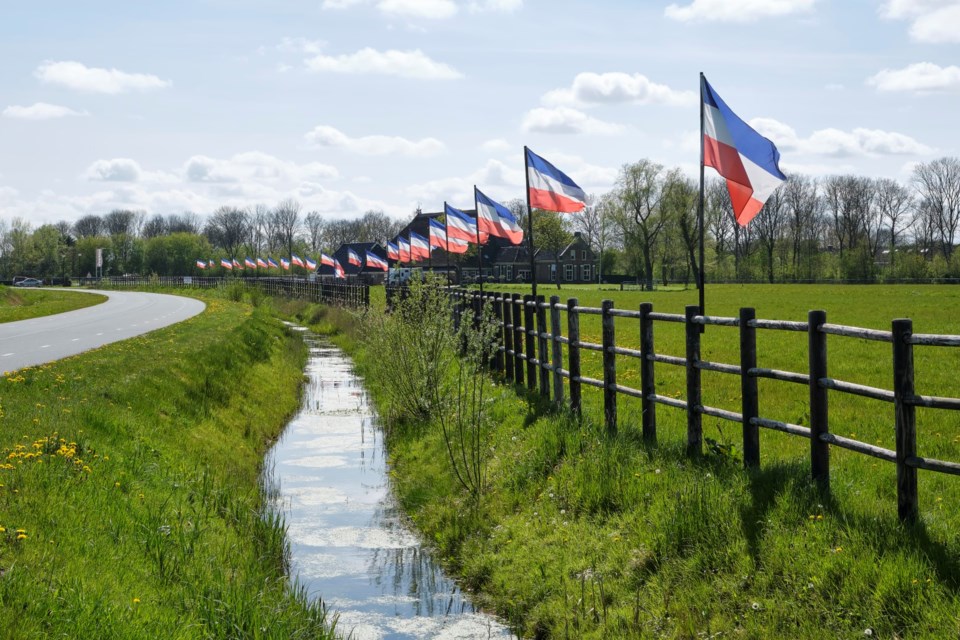WESTERN PRODUCER — Many farmers in Europe are fed up and angry and showing it by getting in their tractors to form convoys clogging highways, blocking city centres and ports and demanding changes from their governments and the European Commission.
Farmer protests in Europe are not uncommon. In France in particular, there is always an issue that prompts someone to drop a wagon full of manure on the steps of the local government building.
But this winter the situation is different. From Spain to Poland and everywhere in between, farmers are protesting.
The focus of their scorn changes from country to country, but broadly they can be summed up this way: the European Union and its member states have instituted a regulatory framework, much of it related to the environment, that many farmers find burdensome, full of red tape and expensive. At the same time, farmers feel their incomes are undercut by imports of agricultural goods from countries that don’t have the same expensive regulatory burden.
All this is made worse by Russia’s war on Ukraine, which sparked disruptions that caused input costs to soar.
Also, extreme weather such as last summer’s intense heat, drought and wildfires across the Mediterranean region and flooding in central Europe has complicated production and cut yields.
And to make matters worse, commodity grain prices have fallen while input costs, driven by high inflation, have not.
Long simmering frustration has exploded into open protest.
The European Commission and national governments have tried to repair relations by rolling back some measures, but protests are still happening.
The complaints directly linked to agriculture have also been mixed in with a general distrust of government. And in today’s climate of political polarization and extremism, groups with goals beyond agricultural policy have tried to influence the protests and spin them as supportive of their wider agendas.
In 2020, as part of a wider green new deal, the European Union launched what it called the Farm to Fork strategy.
It was devised to reduce emissions from agriculture that contribute to climate change and promote biodiversity.
The program was ambitious. There is a part of European society that thinks that, confronted by the severe threat posed by climate change and the alarming loss of biodiversity, all parts of society must become more environmentally sustainable.
Because European farmers under the Common Agriculture Policy (CAP) are already supported by taxpayer-funded programs, and some would argue are a cosseted class, they should meet the goals set out under the Farm to Fork strategy if they want to continue to receive CAP supports.
Initially, the Farm to Fork plan had objectives for 2030 to reduce the use of chemical pesticides by 50 percent, fertilizers by 20 percent and antibiotics by 50 percent while increasing organic production to 25 percent of total agricultural production.
Not all of it survived into law. The pesticide bill was defeated by the European Parliament.
Other parts were slowly moving through the political process when all was thrown into chaos when Russia invaded Ukraine in 2022.
The energy market was upended, causing soaring fuel and fertilizer costs, Ukraine’s food exports were cut off, pushing crop prices sky high, and worries mounted about food security in poor countries that relied on imports from the Black Sea.
Generally there was great sympathy and support for Ukraine, but gradually an issue arose in countries bordering Ukraine. With Russia blocking its sea access, Ukrainian farm products moved by truck, rail and river into its neighbours, where the competition with locally produced food pushed prices down, angering local producers.
The frustrations that stem from competing against cheaper imports are also highlighted in opposition to the EU-Mercosur trade deal.
The deal with the South American bloc of Brazil, Argentina, Paraguay and Uruguay is approved in principle but not yet final. European farmers fear it would unleash a flood of imported cheap beef and other goods.
There are many more issues, and shaken governments have responded to some of them. There will be emergency limits on Ukraine food trade. Germany will continue diesel subsidies. Environmental set-asides will be delayed.
But what happens next?
The serious environmental issues remain. Many farmers worry that climate change will harm their livelihood.
Italy’s main farming lobby, Coldiretti, this month issued a warning that “a boiling winter is causing nature to crash.”
Many European politicians admit Farm to Fork is too much a “top down” strategy. Future policy must be developed with more dialogue to build trust.
It will be a challenge to devise programs that are both environmentally and financially sustainable.
Blanket policies for all of Europe conflict with the wide range of farming types, climate and geography across the continent.
Perhaps the best that can be hoped for is to offer carrots rather than sticks — helping to pay for whatever environmental projects a farmer wants to implement on his or her operation.




